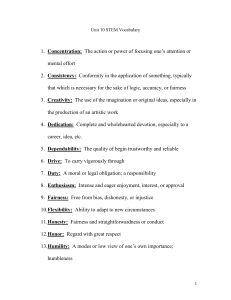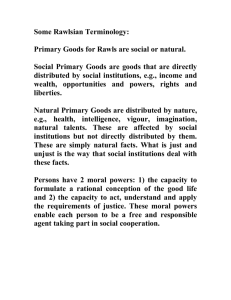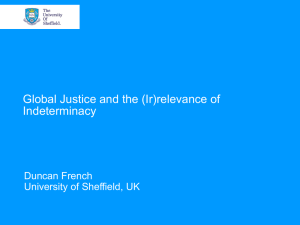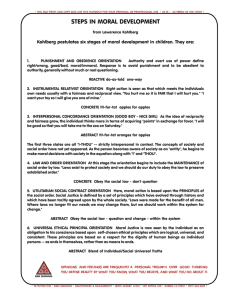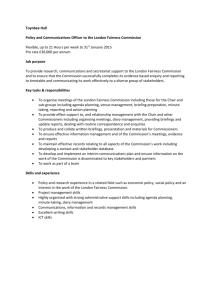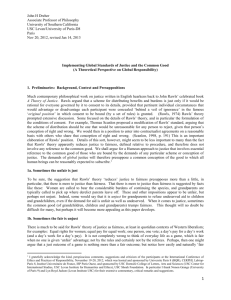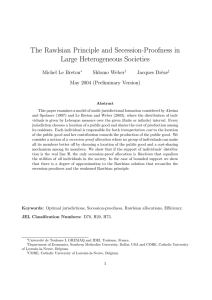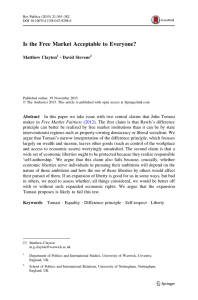Building on the Idea of Free Market Fairness
advertisement
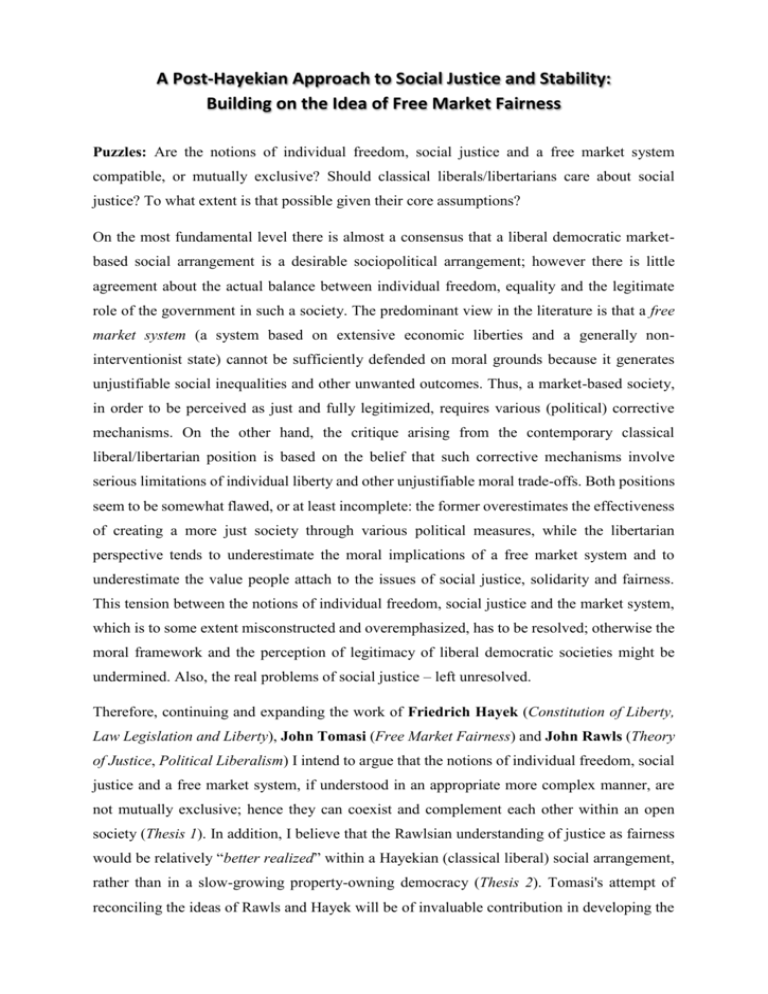
A Post-Hayekian Approach to Social Justice and Stability: Building on the Idea of Free Market Fairness Puzzles: Are the notions of individual freedom, social justice and a free market system compatible, or mutually exclusive? Should classical liberals/libertarians care about social justice? To what extent is that possible given their core assumptions? On the most fundamental level there is almost a consensus that a liberal democratic marketbased social arrangement is a desirable sociopolitical arrangement; however there is little agreement about the actual balance between individual freedom, equality and the legitimate role of the government in such a society. The predominant view in the literature is that a free market system (a system based on extensive economic liberties and a generally noninterventionist state) cannot be sufficiently defended on moral grounds because it generates unjustifiable social inequalities and other unwanted outcomes. Thus, a market-based society, in order to be perceived as just and fully legitimized, requires various (political) corrective mechanisms. On the other hand, the critique arising from the contemporary classical liberal/libertarian position is based on the belief that such corrective mechanisms involve serious limitations of individual liberty and other unjustifiable moral trade-offs. Both positions seem to be somewhat flawed, or at least incomplete: the former overestimates the effectiveness of creating a more just society through various political measures, while the libertarian perspective tends to underestimate the moral implications of a free market system and to underestimate the value people attach to the issues of social justice, solidarity and fairness. This tension between the notions of individual freedom, social justice and the market system, which is to some extent misconstructed and overemphasized, has to be resolved; otherwise the moral framework and the perception of legitimacy of liberal democratic societies might be undermined. Also, the real problems of social justice – left unresolved. Therefore, continuing and expanding the work of Friedrich Hayek (Constitution of Liberty, Law Legislation and Liberty), John Tomasi (Free Market Fairness) and John Rawls (Theory of Justice, Political Liberalism) I intend to argue that the notions of individual freedom, social justice and a free market system, if understood in an appropriate more complex manner, are not mutually exclusive; hence they can coexist and complement each other within an open society (Thesis 1). In addition, I believe that the Rawlsian understanding of justice as fairness would be relatively “better realized” within a Hayekian (classical liberal) social arrangement, rather than in a slow-growing property-owning democracy (Thesis 2). Tomasi's attempt of reconciling the ideas of Rawls and Hayek will be of invaluable contribution in developing the proposed post-Hayekian approach to social justice as fairness, conceptualized in a more market friendly manner in order to account for the diversity of contemporary societies and today’s highly globalized economy. Given the fact that in modern heterogeneous societies it is difficult to expect that people could agree on any particular conception of social justice, such a “hybrid understanding” of social justice could offer a new valuable perspective for the formation of an Rawlsian overlapping consensus of reasonable doctrines. I do not intend to argue for a crude synthesis of the positions developed by each of these perspectives, nor would such a synthesis be even possible. My aim is to show that these two schools of thought (Rawlsian and Hayekian) have relevant underlying similarities and shared moral commitments which would justify a more open and extensive interchange among them. Emil Vargović
